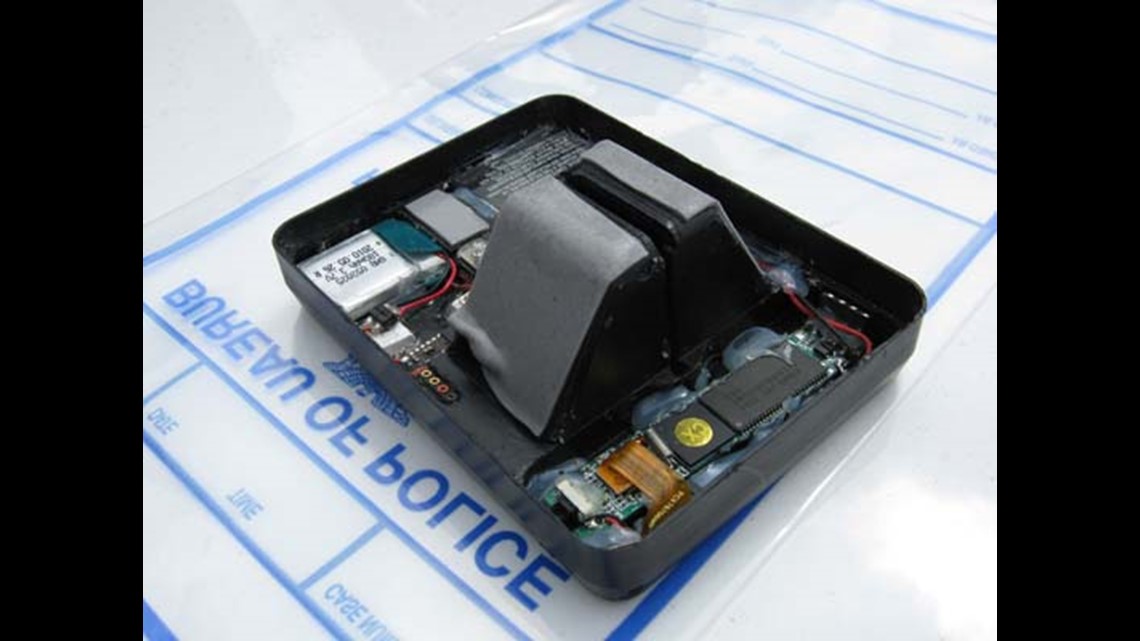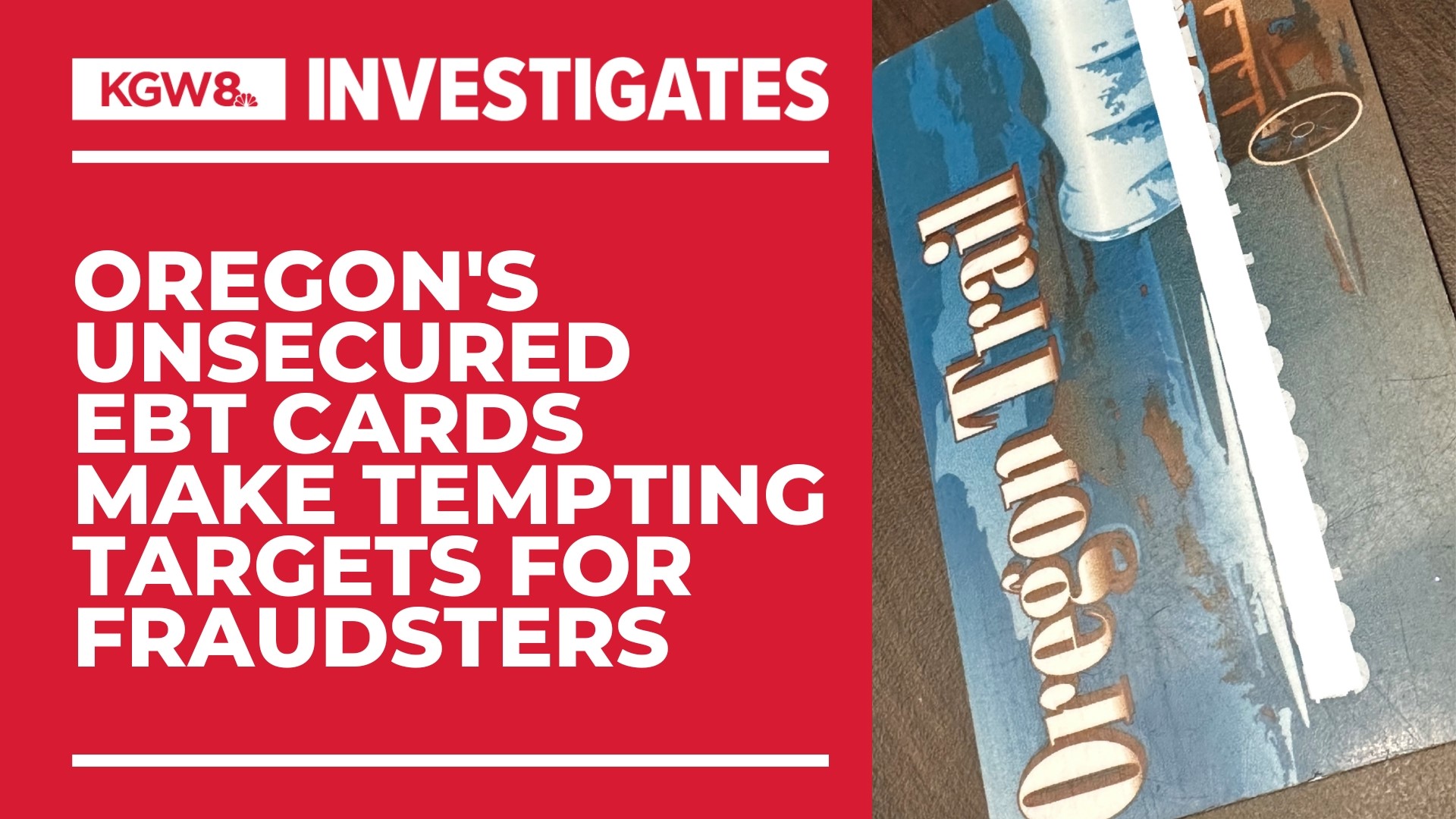PORTLAND, Ore. — Crammed inside a budget hotel, Tricia Collins works hard to make the most of a tough situation. With no steady income, the Portland woman stretches every penny to help support her 10-year-old son. State-issued food stamps and cash assistance are lifelines for her.
”I depend on both of them to an extreme,” said Collins.
On the first of each month, the Oregon Department of Human Services loads the 39-year-old mother’s EBT card, known as the Oregon Trail Card, with benefits. She receives both SNAP benefits for food assistance and TANF cash benefits that can help with other expenses.
“We wait for that one day that you’re going to get paid and all those things that you need to get done,” explained Collins.
On the morning of December 1, Collins went to the ATM at a convenience store expecting to find a month’s worth of benefits on her Oregon Trail card.
“My money was gone and I didn’t understand what was going on,” explained Collins.
Her heart sank. Collins needed money for her car. Her son’s birthday was just a few days away and Christmas was coming.


After a dizzying number of calls, Collins finally reached some at Oregon’s Department of Human Services. A customer service agent explained someone had withdrawn $420 from Tricia’s account during two separate transactions at 8:26 a.m. and 8:28 a.m. from an ATM at a 7-Eleven store in Edgewood, Washington.
Collins warned the state agency that her account had been compromised. Employees told her there was little they could do.
“I’m hoping that this person only hit my card once and that it wasn’t going to happen again,” said Collins.
It did happen again. One month later.
On January 1, DHS told Collins someone had stolen her benefits by withdrawing $400 at 7:14 a.m. from an ATM at 7-Eleven store in Kent, Washington.
“It blew my mind that nobody on the fraud department side did anything. No flags, no nothing,” said Collins. “If it was a Visa or Mastercard (and) the transactions were done in another state you’d get a call immediately.”
Jana McDonald of Portland had a similar experience. DHS told her someone swiped $600 in food stamp benefits from her Oregon Trail Card.
“They said it had been used all at once on an online order. It had gotten sent to Florida. I’m like, ‘Wait a minute, Florida? I’m not in Florida!” explained the Portland woman.
By law, Oregon DHS says it is unable to replace stolen SNAP benefits. The recent federal spending bill could change that, however, eventually allowing states to replace stolen benefits.
Over the past several months, the USDA, which oversees food assistance, along with several states, have warned about fraud tied to EBT accounts.
Crooks often skim EBT cards by secretly installing a device on ATM readers that sends card numbers and pin numbers back to the thieves — who then create fake cards and drain accounts.


“We think it is unacceptable that fraudsters are getting away with taking those benefits from consumers with really no penalty,” said John Breyault of the National Consumers League.
Breyault believes states need to replace stolen benefits and improve fraud detection. And most importantly, Breyault argues, states should upgrade the EBT cards with smart chip technology that makes them more difficult and expensive for fraudsters to skim. Currently, every state still uses the old-fashioned cards with a magnetic stripe and no chip, according to the USDA.
“That is not secure, and it is trivially easy for crooks to use skimmers and other devices to get the information off those cards, clone the cards and start running up charges on them,” said Breyault.
Oregon DHS argued chip cards are not cost-effective.
“CHIP cards are significantly more expensive for the state to issue and use than the current magstripe cards and are still susceptible to fraud and skimming devices,” said Oregon DHS spokesperson Jake Sunderland in a written statement to KGW. “It is not believed that using CHIP EBT cards would significantly reduce the rates of fraud and stolen benefits, and that the increased cost of CHIP cards will not result in any significant benefit to people using EBT cards.”
In 2019, Visa reported chip cards reduced counterfeit fraud by 76%.
For fraud victims like Collins, it seems like a no-brainer. Oregon DHS should protect those most in need.
“It’s very ... it’s devastating for all of us for them not to do anything,” said Collins.
She argues EBT recipients should have the same security technology as everyone else using the banking system.
“I’m sure they have enough money to put a chip in a damn card,” said Collins.
The USDA encourages SNAP participants to take actions that may help prevent card skimming. For example:
- Keep your PIN secret. Do not share your PIN with anyone outside your household. Cover the keypad when you enter your PIN on a machine.
- Check your EBT account regularly for unauthorized charges. If you notice any, change your PIN immediately to stop the thief from making any new purchases.
- Check card reading machines to make sure there’s nothing suspicious overlayed or attached to the card swiper or keypad. The overlays can be difficult to detect but are often bigger than the original machine and may hide parts of the machine.

